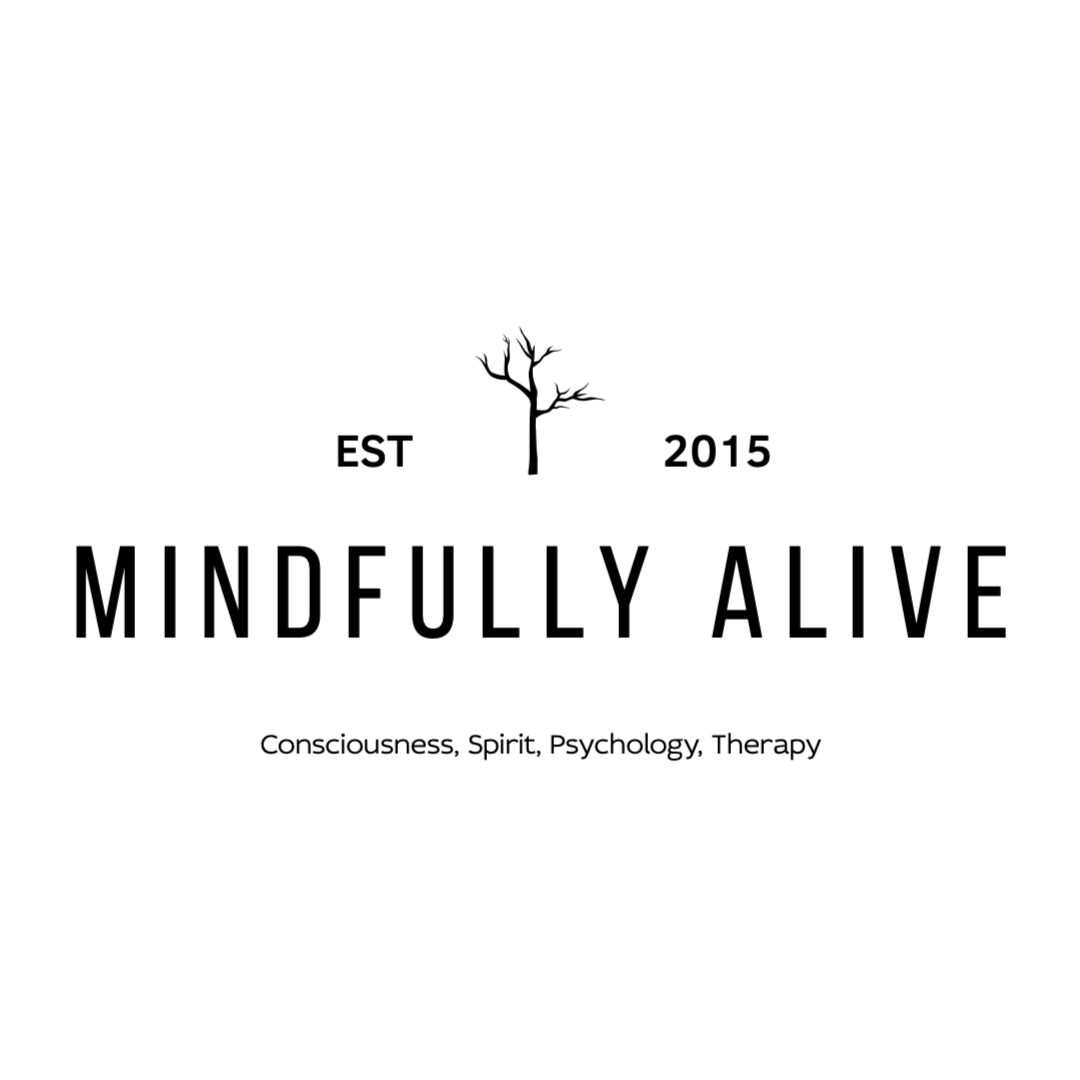Healing from Within – A Holistic Approach to Psychotherapy
Welcome. If you’re here, it’s likely that you’re quietly carrying emotional pain and feeling lost, overwhelmed, or uncertain about why you feel the way you do. We understand, and we’re here to help.
At Mindfully Alive, we specialize in helping people who are struggling with chronic feelings of guilt and shame, emotional numbness or detachment, perfectionism, imposter syndrome, intense anxiety and hyper vigilance, depression and hopelessness, irritability, anger, fear of abandonment or rejection, difficulty trusting others, unexplained chronic pain or autoimmune disorders, negative self-image, a sense of confusion about identity, difficulty concentrating or focusing, avoidance or suppression, chronic fatigue, sleep disturbances, difficulty with self care and boundaries, numbness or disconnection from the body, relationship struggles and more.
You don’t have to carry this mental and emotional weight alone. We’re committed to helping you heal — mind, body, and spirit.

A Whole-Person, Holistic Healing Journey
We believe that healing requires more than just talking about your experiences. It’s about addressing the whole person — your thoughts, emotions, physical body, and spirit. While talk therapy is an important and valuable tool, for many people, it isn’t always enough on its own (read more about this here). The experiences that caused the mental and emotional challenges our clients struggle with affected the brain, but also the body, the subconscious and the nervous system in ways that go beyond what can be addressed by verbal processing alone. This approach is deeply rooted in both mind-body integration and neuroscience. That’s why we use a holistic approach to therapy that’s designed to support your healing journey at every level. Our highly trained team stays on the cutting edge of clinical competence and above all, we deeply love the work we do – this work is not just our job, it is our mission.

Evidence-Based, Trauma-Informed Therapy
Our approach focuses on the deep, lasting changes that goes beyond symptom management, fostering profound personal growth and healing. Trauma informed therapy shifts the perspective from “what is wrong with you?” to “what happened to you?” Our approach is evidence-based, meaning we use therapies that are scientifically proven to help people heal. We combine multiple therapeutic modalities, blending mind-body-spirit approaches, depending on your unique needs, including: EMDR (Eye Movement and Desensitization Reprocessing), IFS (Internal Family System), CBT (Cognitive Behavioral Therapy) and Mindfulness practices that establish a connection with the body, the present moment, our thoughts and emotions.
Grounded in the merging of the above philosophies, we seek to serve you in the Northern New Jersey area with the following areas of practice:

“Until you make the unconscious conscious, it will direct your life and you will call it fate” – Carl Jung
“Who looks outside, dreams; who looks inside, awakes” – Carl Jung
“Love is what we were born with. Fear is what we learned here.”- Marianne Williamson
“When you shut down emotion, you’re also affecting your immune system, your nervous system. So the repression of emotion, which is a survival strategy, then becomes a source of physiological illness later on.” – Gabor Maté
“You don’t attract what you want. You attract what you are.” – Wayne Dyer
“THE PATH TO LIBERATION IS NOT ABOUT FEELING BETTER, BUT TO GET BETTER AT FEELING.”
“EMDR gives access to the person’s higher self. It opens a portal to inner wisdom by shutting down the ego and intellect. This is no small thing” – Dr. Andrew Dobo
“The relationship you have with yourself affects all the others.”
Modalities
Research has consistently shown that EMDR is an evidence-based treatment, proven to be effective in alleviating the symptoms of trauma, PTSD, and related disorders. Numerous studies and clinical trials have demonstrated its ability to bring about significant improvement in emotional regulation, self-perception, and overall mental health, making it a highly validated and widely recognized approach for trauma processing and recovery.
EMDR has two very important strengths that differentiate it from all other modalities: (1) it rapidly and completely uncovers past traumatic events that have been repressed or only partially remembered, and (2) it allows for the processing of the memory so that the reliving component is eliminated and the person can then remember the traumatic event in a more abstract and emotionally detached way, thus shifting internal paradigms or beliefs created about one self.
Internal Family Systems (IFS) therapy is an evidence-based therapeutic approach that has gained recognition for its effectiveness in treating a wide range of mental health conditions, particularly those related to trauma, emotional regulation, and interpersonal issues. Developed by Dr. Richard Schwartz in the 1980s, IFS is based on the idea that the mind is made up of multiple “parts” or sub-personalities, each with its own thoughts, emotions, and behaviors. IFS works to identify and harmonize these parts to achieve emotional healing and psychological well-being.
IFS therapy is built on the premise that each person has a core Self, which is inherently wise, compassionate, and resilient. The role of therapy is to help the client access and strengthen this core Self, which can then lead the process of healing by interacting with the various “parts” or sub-personalities.
Self and Parts
IFS divides the mind into different “parts” (e.g., Exiles, Managers, Firefighters), each with distinct roles and emotional energies. Some parts are adaptive, while others develop maladaptive behaviors in response to past trauma or unmet emotional needs.
Healing The parts
IFS helps clients connect with their Self to heal wounded or traumatized parts (Exiles) and to harmonize internal conflicts between parts (e.g., Manager parts striving for control vs. Firefighter parts reacting with impulsive behaviors). The Self has the capacity to lead these parts toward healing, which can help reduce internal conflicts and emotional distress.
Trauma Processing
IFS allows clients to safely access and process traumatic memories, feelings, and images without re-traumatization. The “Exile” parts, often the bearers of trauma, are treated with compassion and gradually integrated into the broader self-system, reducing their ability to disrupt the person’s life.
Dual Process of Healing:
By connecting with the Self, clients can develop a compassionate inner voice that helps them work with wounded parts, enabling them to process trauma while simultaneously increasing their sense of internal safety.
Understanding Internal Conflict:
IFS emphasizes the internal conflicts between different parts of the self, which may have developed as adaptive coping mechanisms in response to past trauma. This perspective leads to a more compassionate and non-judgmental understanding of the client’s struggles, which in turn fosters greater self-acceptance.
Collaborative Healing:
Instead of labeling parts as “negative” or “dysfunctional,” IFS promotes the idea that all parts have positive intent. For example, a person’s anger (Firefighter) may be protecting them from feelings of helplessness or vulnerability. By understanding these intentions, the client can work with the parts to find healthier ways of coping.
Self-Leadership:
By accessing the Self, clients learn to regulate their emotional reactions and gain a sense of control over their behavior. The Self embodies qualities like curiosity, calmness, compassion, and confidence, which helps clients manage distressing emotions like anxiety, sadness, or anger.
Emotional Freedom:
Clients gain the ability to experience emotions without being overwhelmed by them, which is particularly helpful for those who struggle with emotional dysregulation (e.g., in borderline personality disorder (BPD), anxiety disorders, or depression).
EMDR + IFS
As trauma-informed professionals, we integrate EMDR (Eye Movement Desensitization and Reprocessing) and Internal Family Systems (IFS) therapy, recognizing them as complementary and collaborative approaches in trauma healing. Both modalities are grounded in the understanding that unresolved trauma can manifest in complex emotional and psychological responses, and together they offer a holistic framework for processing and integrating traumatic experiences. By combining the strengths of EMDR’s evidence-based, structured trauma processing with IFS’s focus on internal parts and self-leadership, we provide a comprehensive and individualized treatment plan that fosters healing, emotional regulation, and long-term resilience.
Cognitive Behavioral Therapy (CBT) is one of the most widely used and well-researched therapeutic approaches, and it has proven highly effective for a wide range of mental health conditions. Its effectiveness lies in its ability to empower clients to take an active role in their own mental health by helping them identify, challenge, and change maladaptive thoughts and behaviors. Its structured, goal-oriented nature makes it a time-efficient and practical approach, while its evidence-based techniques are applicable across a wide range of psychological conditions (including: depression, anxiety disorders, PTSD, OCD, ADHD, eating disorders, and substance use).
With its emphasis on skill-building, cognitive restructuring, and behavioral change, CBT offers long-lasting benefits for clients seeking to improve their mental health, emotional regulation, and overall well-being.
The Positive Psychology therapeutic approach focuses on enhancing well-being, personal strengths, and the factors that contribute to a fulfilling and meaningful life. Unlike traditional therapeutic models that often emphasize symptom reduction, Positive Psychology aims to help clients build resilience, increase life satisfaction, and thrive by focusing on positive emotions, strengths, and personal growth.
Here are some key benefits of the Positive Psychology approach:
1. Enhancing Well-Being
Positive Psychology emphasizes the cultivation of positive emotions (e.g., joy, gratitude, hope, and love), which can significantly improve overall well-being. Research has shown that fostering positive emotions can lead to greater life satisfaction, reduced stress, and enhanced emotional resilience. Clients learn to focus on what’s going well in their lives, which can counteract negative thinking patterns and promote greater happiness.
2. Strengthening Resilience
By focusing on an individual’s inherent strengths (such as optimism, creativity, perseverance, or courage), Positive Psychology helps clients develop greater resilience. This allows them to better cope with challenges, setbacks, and adversity, and to bounce back more effectively after difficulties. Resilient individuals tend to experience less burnout, anxiety, and depression, as they have stronger psychological resources to manage stress.
3. Increased Self-Awareness and Self-Esteem
Positive Psychology encourages clients to identify and utilize their strengths, which fosters self-awareness and self-esteem. Recognizing and embracing one’s strengths can lead to greater confidence and a more positive self-image, helping individuals feel empowered to pursue their goals and handle obstacles in life.
4. Improved Relationships
Positive Psychology emphasizes gratitude, empathy, and forgiveness, which are key components of building and maintaining healthy, positive relationships. Research has shown that practicing gratitude and kindness can lead to stronger social connections, improved communication, and greater emotional intimacy. These positive interactions contribute to a sense of belonging and fulfillment.
5. Meaning and Purpose
One of the core tenets of Positive Psychology is the focus on meaning and purpose in life. Engaging in activities that align with personal values and contribute to a greater good can increase a person’s sense of fulfillment and life satisfaction. Clients who are encouraged to explore and pursue meaningful goals often experience a deeper sense of direction and purpose in life, which can protect against feelings of emptiness or despair.
6. Promotion of Flow
Flow refers to a state of deep immersion and focus in an activity, where individuals feel fully engaged and energized. Positive Psychology helps clients identify activities that promote flow, which can lead to greater happiness, fulfillment, and performance. Regular experiences of flow are linked to increased motivation, creativity, and positive mental health.
7. Reduction of Negative Emotions
Although Positive Psychology does not ignore negative emotions, it emphasizes the importance of cultivating positive emotions to counterbalance negative ones. By focusing on strengths, gratitude, and mindfulness, clients can reduce the frequency and intensity of negative emotions such as anxiety, anger, and sadness. This approach helps clients develop a more balanced and positive emotional landscape, leading to greater emotional stability and mental health.
8. Evidence-Based Effectiveness
Research in Positive Psychology has consistently shown its effectiveness in improving mental health outcomes. Interventions such as gratitude exercises, strength identification, mindfulness, and goal-setting have been linked to decreases in depression and anxiety, as well as improvements in happiness and life satisfaction. Studies also suggest that Positive Psychology can enhance overall well-being even for people without clinical disorders.
9. Improved Mental Health and Physical Health
Positive emotions have been linked to both improved mental health and better physical health. Research shows that individuals who experience more positive emotions have lower levels of stress, better immune functioning, and healthier cardiovascular outcomes. Positive Psychology interventions that focus on fostering joy, optimism, and hope have been shown to reduce the physiological impacts of chronic stress and improve overall health outcomes.
The Person-Centered Approach in therapy, was by Carl Rogers, and emphasizes the therapeutic relationship as the core of healing. In this approach, the therapist provides a supportive environment that fosters unconditional positive regard, empathy, and genuineness—qualities that help clients feel safe and understood. This environment encourages self-exploration, self-acceptance, and personal growth, allowing clients to explore their feelings and thoughts without fear of judgment.
Effectiveness of the Person-Centered Approach:
Promotes Self-Exploration and Empowerment: By creating a non-judgmental space, the person-centered approach empowers clients to explore their own feelings and experiences. This leads to greater self-awareness, personal insight, and the ability to make healthier decisions.
Improves Self-Esteem and Self-Concept: As clients feel accepted and understood, their self-esteem and self-concept improve. This is particularly beneficial for those with anxiety, depression, or low self-worth.
Facilitates Emotional Healing: The empathetic, non-judgmental environment allows clients to process difficult emotions at their own pace, facilitating emotional healing and resilience.
Enhances Autonomy and Self-Actualization: The person-centered approach emphasizes the individual’s innate potential for growth, leading to increased self-efficacy and motivation for positive change.
Relational therapy focuses on the dynamics between the therapist and client, as well as the ways in which clients interact with others in their lives. The core idea is that relationships are central to psychological health, and that healing occurs within the context of the therapeutic relationship itself. Relational therapy emphasizes connection, attachment, and communication, aiming to improve both self-awareness and interpersonal relationships.
Relational therapy provides a safe space for clients to explore their relational dynamics, both past and present, with the goal of creating healthier connections with themselves and others. By focusing on the therapeutic relationship, addressing attachment issues, and exploring interpersonal patterns, relational therapy empowers clients to break free from destructive cycles and build stronger, more fulfilling relationships.
Its emphasis on empathy, validation, and collaboration creates an environment where clients feel deeply understood and supported, which can lead to lasting changes in emotional well-being and interpersonal functioning. The focus on how relationships shape and reflect the self makes relational therapy especially valuable for clients struggling with relational issues, trauma, attachment wounds, and emotional regulation.
Mindfulness involves cultivating an awareness of the present moment, without judgment, and is often practiced through techniques such as mindfulness meditation, breathing exercises, and body awareness. Mindfulness practices help individuals develop greater awareness, acceptance, and regulation of their thoughts, feelings, and behaviors. By increasing self-awareness and present-moment focus, mindfulness enhances well-being, reduces emotional distress, and promotes resilience. Furthermore, the mindfulness approach to therapy, helps individuals develop acceptance toward their emotions rather than trying to avoid or suppress them, which in turn reduces emotional distress.
Mindfulness works by increasing cognitive flexibility, reducing rumination, and promoting self-compassion. This shift in how individuals relate to their thoughts and emotions helps reduce symptoms associated with anxiety, depression, PTSD.
Mindfulness-based interventions have been found to be particularly effective for individuals with a history of trauma or post-traumatic stress disorder (PTSD). Mindfulness helps individuals become more aware of their body and emotions, enabling them to self-regulate and reduce the overwhelming emotional reactivity often associated with trauma.
Studies have shown that mindfulness practices reduce hyperarousal, intrusive thoughts, and avoidance behaviors. Mindfulness interventions help trauma survivors process memories and emotions in a way that reduces their emotional intensity, which promotes healing and emotional regulation. At Mindfully Alive, we specialize in integrating mindfulness into trauma-informed care, where the emphasis is on creating a sense of safety and self-awareness in clients who have experienced trauma. This approach has been shown to enhance self-compassion and body awareness, which are essential for healing trauma.
Attachment-Based Therapy (ABT) is an effective therapeutic model that draws on attachment theory, which emphasizes the importance of early relationships—particularly with primary caregivers—in shaping an individual’s emotional and psychological development. Attachment theory, initially developed by John Bowlby and Mary Ainsworth, suggests that early experiences with caregivers create “attachment styles” that influence how individuals relate to others throughout their lives. In attachment-based therapy, the therapeutic relationship itself is used to help individuals understand and heal patterns of attachment formed in childhood that may be causing issues in their current relationships and mental health.
By exploring attachment patterns and fostering a secure therapeutic relationship, ABT helps clients heal past wounds, develop emotional regulation, and create healthier, more fulfilling relationships in the present. Its focus on attachment offers a comprehensive, holistic approach to mental health that fosters deep, lasting change—making it especially valuable for individuals with trauma histories or difficulties in relational dynamics.
Testimonials
“I never thought that I would need counseling. I am a strong independent person who always kept my emotions in check. I was always someone who would consult with “myself” when ever a problem came up. However, life tends to overwhelm us, even the strongest of us, and I needed someone who would “talk back”. Mindfully Alive was referred to me by someone I trust, and made time for me when I needed it. Why do I pay to talk to my therapist at Mindfully Alive? Because she is someone I can talk to about all of my thoughts without guilt, judgement, or pressure. Every part of my life I thought I was controlling on my own I have found much relief when speaking with my therapist about. She is down-to-earth, real, and genuine. She listens to you, learns your entire situation, and remembers it. What is “Mindfully Alive”? To me, it’s understanding how my specific mind works, tackling those thoughts I only express to myself, and creating strategies that help Me through the things that are taking up so much of my mind’s space. I highly recommend Mindfully Alive; and hope anyone going through a major life crisis speak with a Licensed Professional Counselor, no matter how strong you may think they are.”
~Grateful Client
“Highly recommend! Very professional and they specialize with mindfulness and teaching coping skills.”
~ Client who found relief
“Absolutely phenomenal. Mindfully Alive has become a contributor to our online baseball and softball coaching certification (gocudit.com) program due to their level of expertise in mental preparedness. The best in the industry.”
~Pleased with Mindfully Alive’s Contribution
“I started with Mindfully Alive almost a year ago when I was a few months into a new relationship. As a single mom, business owner and now girlfriend, I was really struggling with anxiety, how to find balance in my life but also how to understand myself and my wants and needs. My therapist has been my lifeline. She has allowed me a safe place to be vulnerable, share my thoughts and feelings without judgement and to help me work though some of the things that I have been struggling with that I wasn’t even aware of. I look forward to our weekly sessions because her kindness, knowledge and guidance help me to not only navigate my daily life but on my journey through life”
~ Pleased Client























